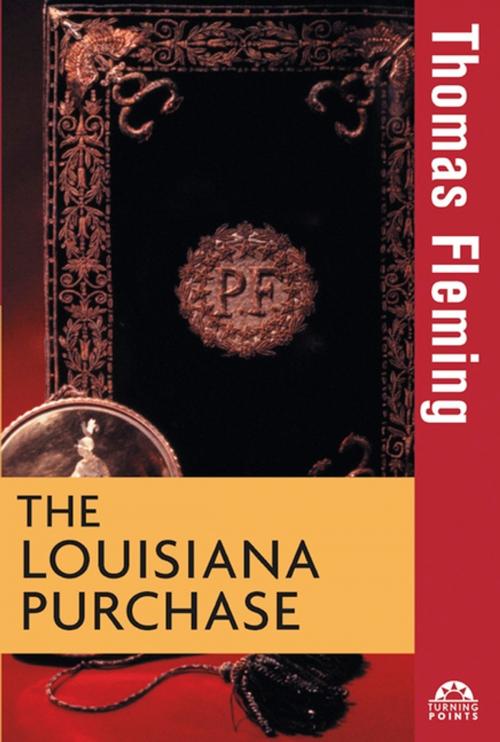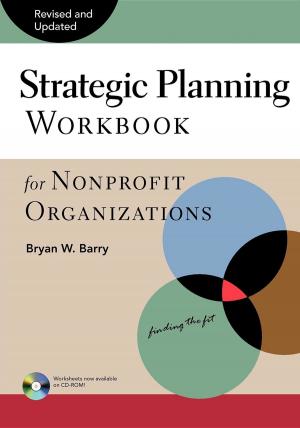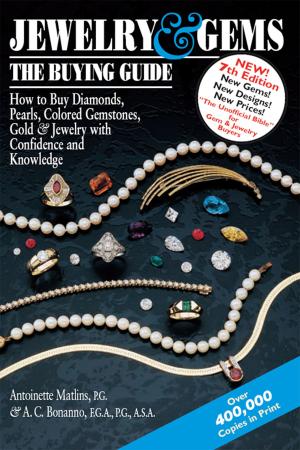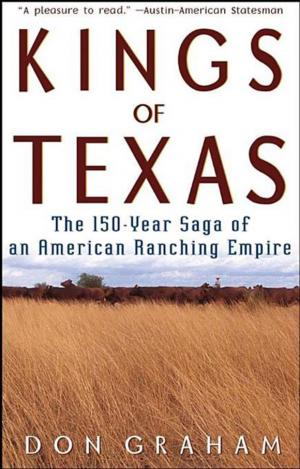The Louisiana Purchase
Nonfiction, History, Americas, United States, Revolutionary Period (1775-1800)| Author: | Thomas Fleming | ISBN: | 9780470253687 |
| Publisher: | Turner Publishing Company | Publication: | August 20, 2007 |
| Imprint: | Wiley | Language: | English |
| Author: | Thomas Fleming |
| ISBN: | 9780470253687 |
| Publisher: | Turner Publishing Company |
| Publication: | August 20, 2007 |
| Imprint: | Wiley |
| Language: | English |
From The Louisiana Purchase
Like many other major events in world history, the Louisiana Purchase is a fascinating mix of destiny and individual energy and creativity. . . . Thomas Jefferson would have been less than human had he not claimed a major share of the credit. In a private letter . . . the president, reviving a favorite metaphor, said he "very early saw" Louisiana was a "speck" that could turn into a "tornado." He added that the public never knew how near "this catastrophe was." But he decided to calm the hotheads of the west and "endure" Napoleon's aggression, betting that a war with England would force Bonaparte to sell. This policy "saved us from the storm." Omitted almost entirely from this account is the melodrama of the purchase, so crowded with "what ifs" that might have changed the outcome-and the history of the world.
The reports of the Lewis and Clark expedition . . . electrified the nation with their descriptions of a region of broad rivers and rich soil, of immense herds of buffalo and other game, of grassy prairies seemingly as illimitable as the ocean. . . . From the Louisiana Purchase would come, in future decades, the states of Arkansas, Missouri, Iowa, Nebraska, South Dakota, and large portions of what is now North Dakota, Montana, Wyoming, Minnesota, Colorado, and Louisiana. For the immediate future, the purchase, by doubling the size of the United States, transformed it from a minor to a major world power. The emboldened Americans soon absorbed West and East Florida and fought mighty England to a bloody stalemate in the War of 1812. Looking westward, the orators of the 1840s who preached the "Manifest Destiny" of the United States to preside from sea to shining sea based their oratorical logic on the Louisiana Purchase.
TURNING POINTS features preeminent writers offering fresh, personal perspectives on the defining events of our time.
From The Louisiana Purchase
Like many other major events in world history, the Louisiana Purchase is a fascinating mix of destiny and individual energy and creativity. . . . Thomas Jefferson would have been less than human had he not claimed a major share of the credit. In a private letter . . . the president, reviving a favorite metaphor, said he "very early saw" Louisiana was a "speck" that could turn into a "tornado." He added that the public never knew how near "this catastrophe was." But he decided to calm the hotheads of the west and "endure" Napoleon's aggression, betting that a war with England would force Bonaparte to sell. This policy "saved us from the storm." Omitted almost entirely from this account is the melodrama of the purchase, so crowded with "what ifs" that might have changed the outcome-and the history of the world.
The reports of the Lewis and Clark expedition . . . electrified the nation with their descriptions of a region of broad rivers and rich soil, of immense herds of buffalo and other game, of grassy prairies seemingly as illimitable as the ocean. . . . From the Louisiana Purchase would come, in future decades, the states of Arkansas, Missouri, Iowa, Nebraska, South Dakota, and large portions of what is now North Dakota, Montana, Wyoming, Minnesota, Colorado, and Louisiana. For the immediate future, the purchase, by doubling the size of the United States, transformed it from a minor to a major world power. The emboldened Americans soon absorbed West and East Florida and fought mighty England to a bloody stalemate in the War of 1812. Looking westward, the orators of the 1840s who preached the "Manifest Destiny" of the United States to preside from sea to shining sea based their oratorical logic on the Louisiana Purchase.
TURNING POINTS features preeminent writers offering fresh, personal perspectives on the defining events of our time.















